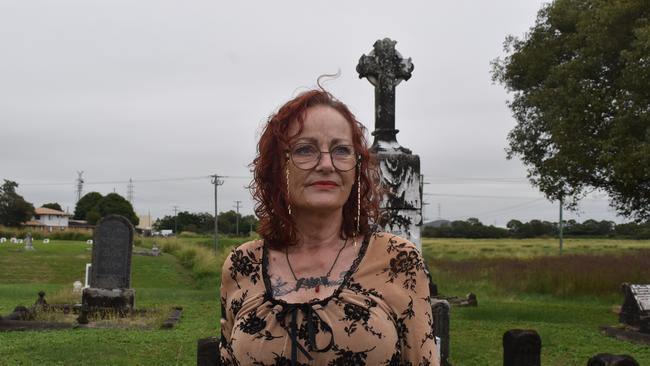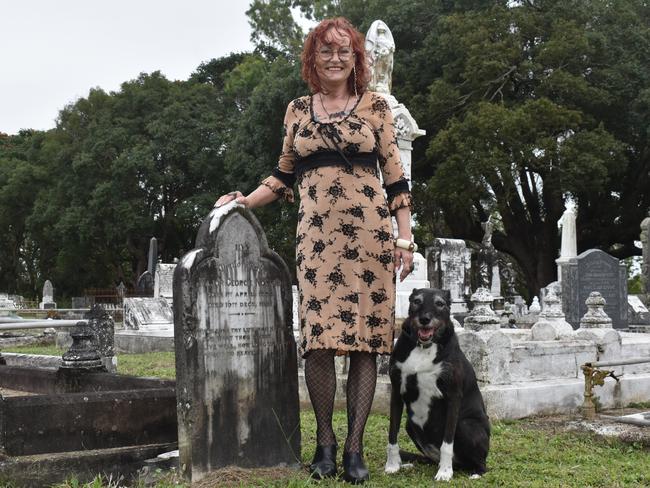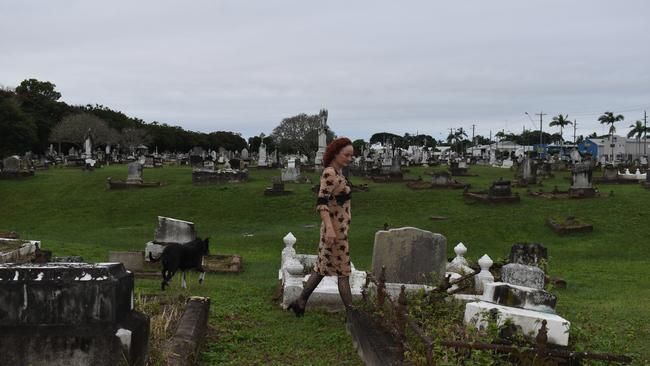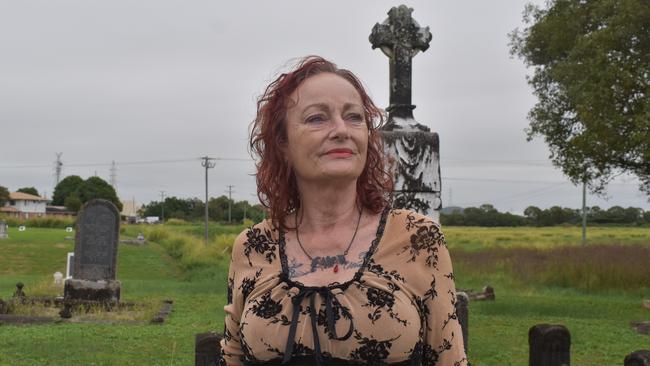Death doula Leanne Jones educating the community about end of life
Meet the death doulas breaking taboos and transforming our understanding of life’s final chapter.

Mackay
Don't miss out on the headlines from Mackay. Followed categories will be added to My News.
In a world where conversations about death are often avoided, there is a group of people on a mission to shine a light on the topic.
Leanne Jones, a certified death doula from Mackay, has dedicated herself to increasing death literacy in the community, offering support and education to those navigating the end-of-life journey.
The role of a death doula, death walker, death midwife, or end-of-life doula is often misunderstood, said Ms Jones, who likened it to the role of a birth midwife
“A birth midwife helps people birth, while a death midwife helps people to die,” she said.
Her work involves providing emotional support, facilitating discussions about death, and helping individuals and families navigate the practical aspects of dying.

Ms Jones said she always had an interest in death and dying, finding solace in cemeteries and was never frightened of death itself.
“I’ve always talked about death, it’s always been a thing for me,” she said.
“The cemetery is my happy place.”
She said while most of her family were practising Catholics, that was never a space she felt comfortable in.
“I couldn’t find a religion, I couldn’t find something that suited me, and then one day I realised it was memento mori,” she said.
“Memento mori is a Latin term for remember that you must die, which means that you live your life with the knowledge that you’re going to die.”
Ms Jones followed her calling and decided to pursue the training to become certified as a death doula.
“It really caught my attention,“ she said.

“It’s not just a job that you do, it has to be something that calls you.”
Now she was passionate about educating the community on death.
“People don’t really understand what actively dying looks like or what it means, a lot of people have never even seen a dead body before,” she said.
“Death used to be in the home, you used to have the body in the front room and you would grieve with the body.”
She said these days death was so medicalised and everything was outsourced, so people weren’t familiar with what happens around death.
She said it was common for people to ask her what death actually looked like, how funeral homes worked, and what happened to your body when you died, as well as questions about the paperwork and logistics that come with dying.
“There’s a lot of misconception around the whole thing, really,” she said.
Fear, cultural taboos, lack of education, and not knowing how to broach the subject were all part of the bigger picture as to why people don’t talk about death.
“There’s a natural reluctance to want to go to an unpleasant place. By nature we avoid unpleasantness,” she said.
She had already collaborated with a local cafe to run Coffee Before the Coffin, providing drop-in sessions for anyone who needed a space to talk, had a question about death, or just an interest in the topic.
She also runs a Facebook page, Talking About Death Won’t Kill You, a platform for people wanting to learn more and engage in discussions about death and memento mori workshops.

Now Ms Jones wants to collaborate with other businesses like local funeral homes to organise public seminars, aiming to demystify dying.
She said times were changing and people were eager to talk, they just needed a safe place to do it.
She urged people to think about end of life and what it might look like to them, and the legacy they wanted to leave.
“You come from a long line of dead people and you know how to die, don’t let anyone tell you otherwise,” she said.
Ms Jones hoped to change the way people perceived death by removing the fear surrounding it.
“What we don’t know is what we tend to fear,” she said.





